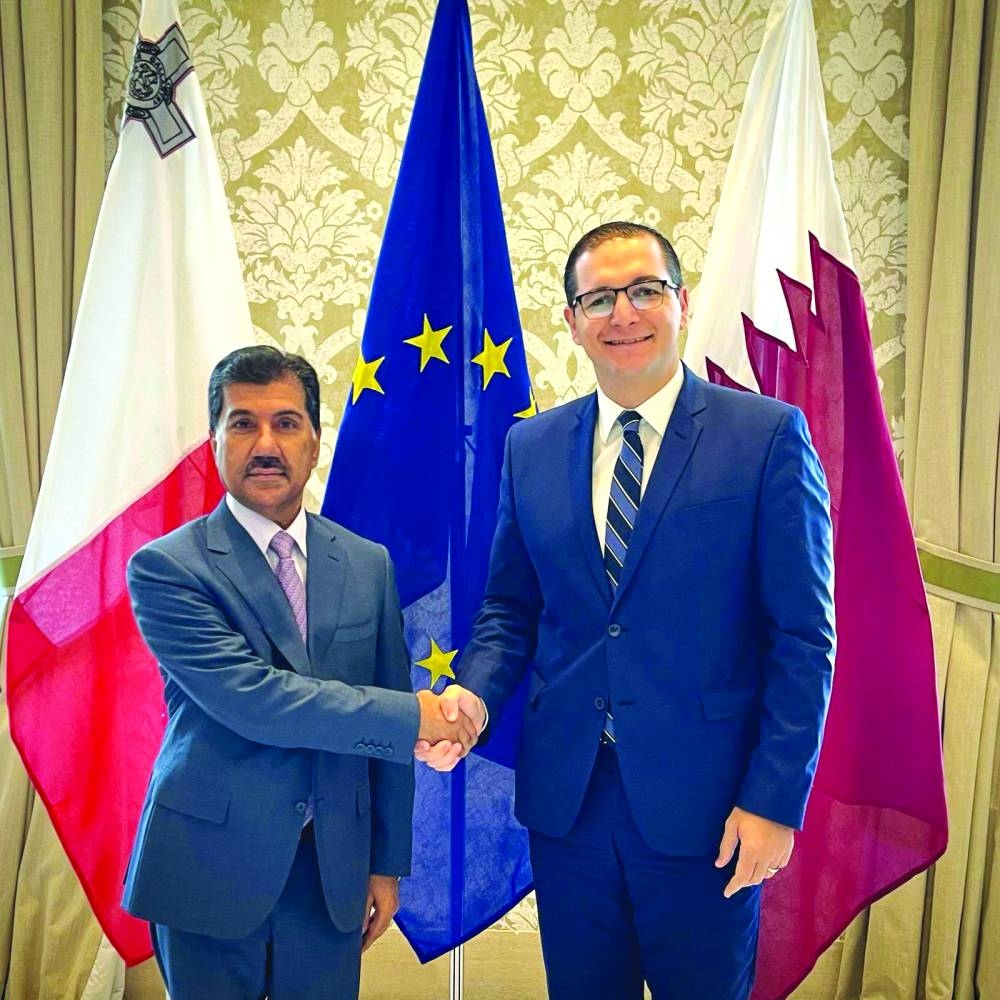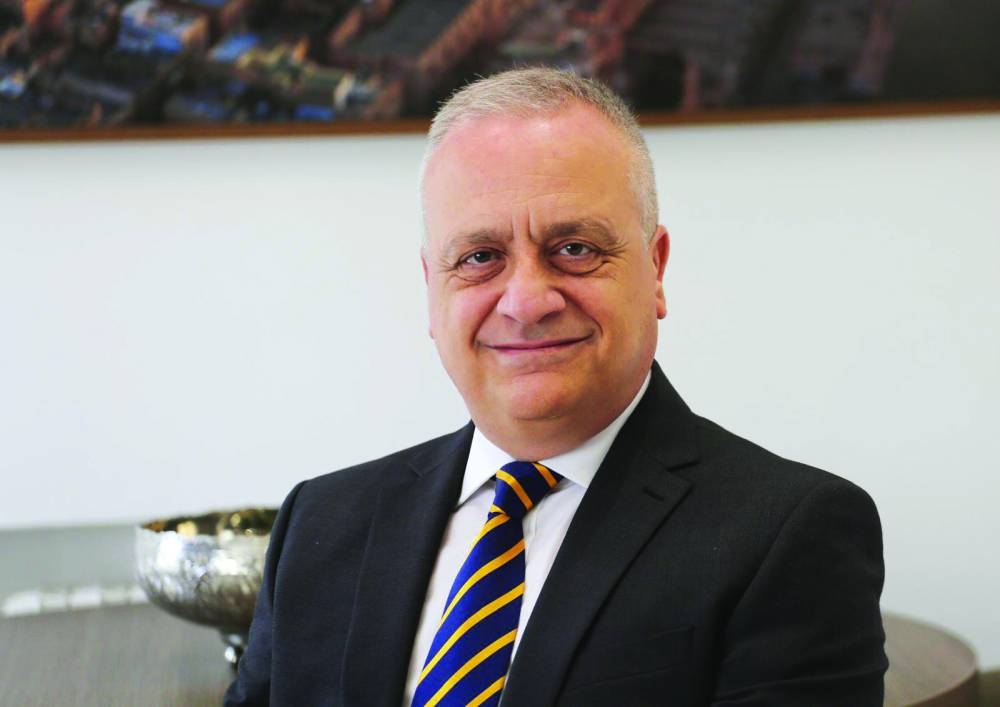The new year 2025 will mark a momentous occasion in the history of Maltese-Qatari relations, as the two countries prepare to commemorate the 50th anniversary of the establishment of bilateral ties. Since June 1975, Malta and Qatar have developed a robust partnership built on mutual respect, shared interests and co-operation. The two nations have forged deep ties, working and supporting each other in international fora, from economic collaboration to the promotion of peace and dialogue on various fronts.
Shared commitment to peace, security and diplomacy
Both Malta and Qatar have the same ambitions enshrined in their respective foreign policies. Malta’s second of its three strategic pillars clearly refers to the promotion of peace, security and dialogue. Similarly, Qatar’s foreign policy is based on a set of principles outlined in its constitution, which include strengthening international peace and security by encouraging the peaceful resolution of international disputes.
To this end, on the multilateral front, Malta is about to conclude its two-year non-permanent membership of the United Nations Security Council (UNSC), where it continued to promote conflict resolution through dialogue, the upholding of international law, advocating for the protection of human rights, bringing to the forefront humanitarian issues and the empowerment of small states.
In addition to its role in the UNSC, Malta also played a key part, after having been chosen by consensus as Chair of the Organisation for Security and Co-operation in Europe (OSCE) for 2024, in ensuring that one of the last channels of communication in Europe remains open. Guided by the motto “Strengthening Resilience, Enhancing Security”, Malta hosted on Dec 5-6, 2024, the 31st Ministerial Council of this organisation, where it managed to find consensus to fill the top four leadership positions of the secretariat and institutions of this organisation.
Describing this meeting as “a proud milestone”, Malta’s Deputy Prime Minister and Minister for Foreign Affairs the Hon. Dr Ian Borg, in his opening speech, referred to the historic 1989 Malta Summit between presidents Bush and Gorbachev which ended the Cold War. He admitted that times have fundamentally changed and that the “principles, rules that have underpinned international peace and security for almost 80 years are being questioned, challenged and actively undermined”. Nevertheless, Dr Borg reaffirmed that Malta remains a “staunch defender of peace and dialogue in the face of the seemingly insurmountable differences and challenges”.
Malta’s drive in the pursuit of peace will continue next year when it also assumes the Presidency of the European Committee of Ministers at the Council of Europe (CoE) from May to November 2025. During its presidency, Malta plans to focus on enhancing the council’s capacity to respond to emerging challenges, including strengthening the protection of human rights in the face of global political and social changes.
In a similar vein, Qatar remains one of the most prominent players in regional and global diplomacy, particularly in the fields of mediation and conflict resolution. We commend Qatar’s unwavering commitment to facilitating peace talks and negotiations, positioning itself as a neutral party with a strong commitment to achieving peaceful solutions to some of the world’s most complex conflicts. Qatar’s tireless work in the Middle East, Asia and Africa as well as between Ukraine and Russia has earned it recognition as a reliable and trustworthy mediator.
Qatar’s support for dialogue is also evident in its hosting of numerous international gatherings such as the Doha Forum, besides actual peace negotiations. It continues to invest heavily in diplomacy, driven by the belief that peace cannot be achieved through military means alone, but must come through dialogue, compromise, and mutual understanding, something which Malta also believes in.
Qatar’s unstinting efforts for an immediate ceasefire in Gaza, as well as the release of hostages and the unrestricted access of humanitarian aid are indeed admirable and commendable. Malta, like Qatar, believes that urgent progress is needed towards a two-state solution to the Israeli-Palestinian conflict. We want to see the State of Israel and a sovereign, independent, democratic, contiguous and viable State of Palestine living side by side in peace and security.
Malta and Qatar’s Thriving Relationship
The relationship between Malta and Qatar extends far beyond diplomacy, with both countries working closely together on a range of issues, including trade, investment, and cultural exchanges. The bilateral ties between the two nations have strengthened in recent years, with both governments recognising the importance of deepening co-operation in areas such as education, tourism, and sustainable development.
Throughout 2024, we had the 1st ever Session of Malta-Qatar Political Consultations which took place in January 2024 in Valletta and led by Permanent Secretary Christopher Cutajar from the Maltese side and HE Dr Ahmad Hassen al-Hammadi, Secretary-General at the Ministry of Foreign Affairs of Qatar. This was followed by a considerable number of high-level visits including those of the Minister of Finance and Employment, the Minister of Education, Youth and Sport, the Minister of Health and Active Aging and the recent visit of Dr Lydia Abela, Spouse of the Prime Minister of Malta for the 30th Anniversary of the International Year of the Family Conference. This is a growing testament of the ever-growing trust between our two countries and the willingness to continue working together for the benefit of our two peoples.
From Malta’s active engagement in the multilateral front, to Qatar’s vital role in mediation and peacebuilding, both nations continue to play a significant role in shaping regional and global diplomacy. Their partnership, built over five decades, exemplifies the power of international cooperation underpinned by the shared belief that diplomacy, dialogue, and mutual respect are the keys to achieving a peaceful and prosperous future for all.
Let us continue persevering in our common endeavour to guarantee a more secure, peaceful and prosperous environment for future generations.

The first Session of Malta-Qatar Political Consultations took place in January 2024 in Valletta.

Simon Pullicino, ambassador of Malta
